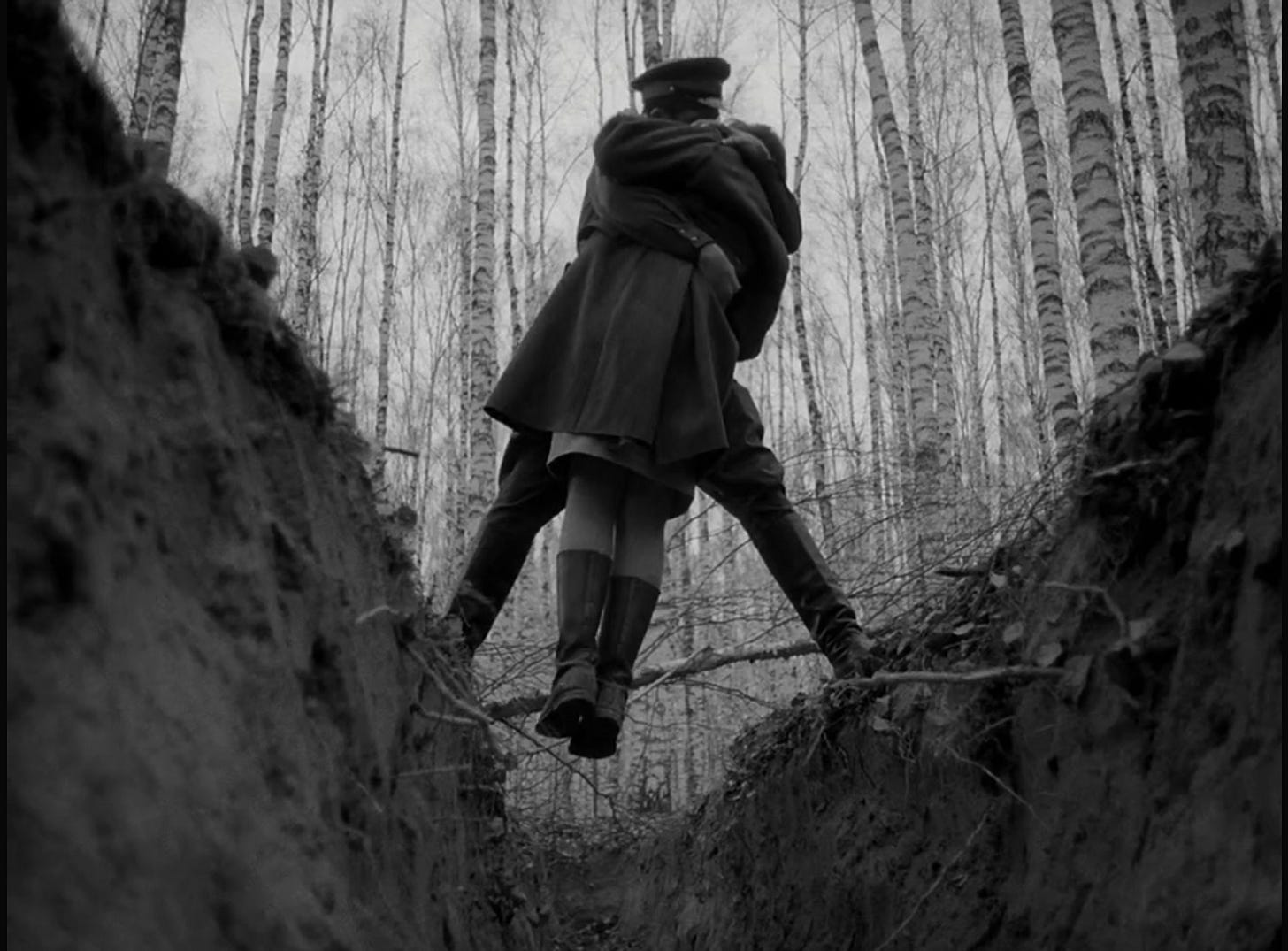A Note on My (Ongoing) Journey Through Cinema
I distinctly remember the first time I saw Cary Grant on screen. It was Stanley Donen’s 1963 caper Charade. A movie I had turned on because it was streaming on Netflix (its early days when Netflix originals were nonexistent) and it starred Audrey Hepburn who was having a sort of resurgence in pop culture in the late 2000s. I had never felt a magnetism towards an actor on screen the way I did towards seeing Grant in the film. I didn’t know who he was but I knew he had to be somebody. The distinct accent, the impeccable wardrobe and the charisma oozing from every word uttered. A movie star if there ever was one. It is this experience that I accredit as the onset of my journey into films of the past.
Growing up, I didn’t really watch movies older than those from the 1980s. My parents are not fans and I wasn’t exposed elsewhere. My notions of black and white films were that they were boring and outdated. What could a film from decades ago have to say to me? A lot, in fact.
My falling for the old movies did not happen in one fell swoop. There were phases. The first was charged by the stars: Clark Gable, Joan Crawford, Humphrey Bogart, and Grace Kelly to name a few. I was drawn to that ineffable star quality they all possessed. These were the founders of the archetypes that have been used over and over again in films ever since. I subsisted my fascination with the podcast, You Must Remember This, particularly the episodes featuring MGM stories.
The next phase was that of the late-60s/70s which is considered to be the prime of the New Hollywood movement. The old Hollywood studio systems had crumbled along with the strict censorship code (aka the Hays code). These two deteriorations created the space for movies to explore themes that they weren’t able to before. Most of the ones I watched were on those “best” lists: The Godfather, Chinatown, Network, and Cabaret. In this decade, I found many new favorite movies and it once again showed me what a movie could be—how a movie can be epic in scope in so many different ways.
I then found myself looking outside of the Hollywood bubble. I realized I was quite literally missing out on an entire world of cinema. Tarkovsky showed me that cinema can be spiritual experience. Kurosawa showed me the importance of a great script. De Sica showed me that a simple story filled with emotion and sincerity can be the most universal story of all. Exploring world cinema (both old and new) is where a lot of my excitement for cinema resides.
After watching so many new movies at the end of 2021 into the beginning of 2022, I am once again submerged in the movies of the past. There is something comforting about this. In some way it makes me feel more connected to humanity. That what people were entertained and moved by decades ago can affect me deeply. Though styles and technology change, at our essence we are the same. This is what I hope to show through my passion for film.
Xoxo
Lauren



This is wonderful. I love it! Thank you so much for sharing. My first love of film came from the big beautiful musicals of the 30s to 50s, and the wonderful song and dance actors of their time. I've fallen in and out of movie going (not watching) over the years, and when the pandemic hit it made all the worse. Even now when I feel comfortable and safe going I still find myself choosing the couch over the theatre and I really want to change that this year. Bring the movies back!